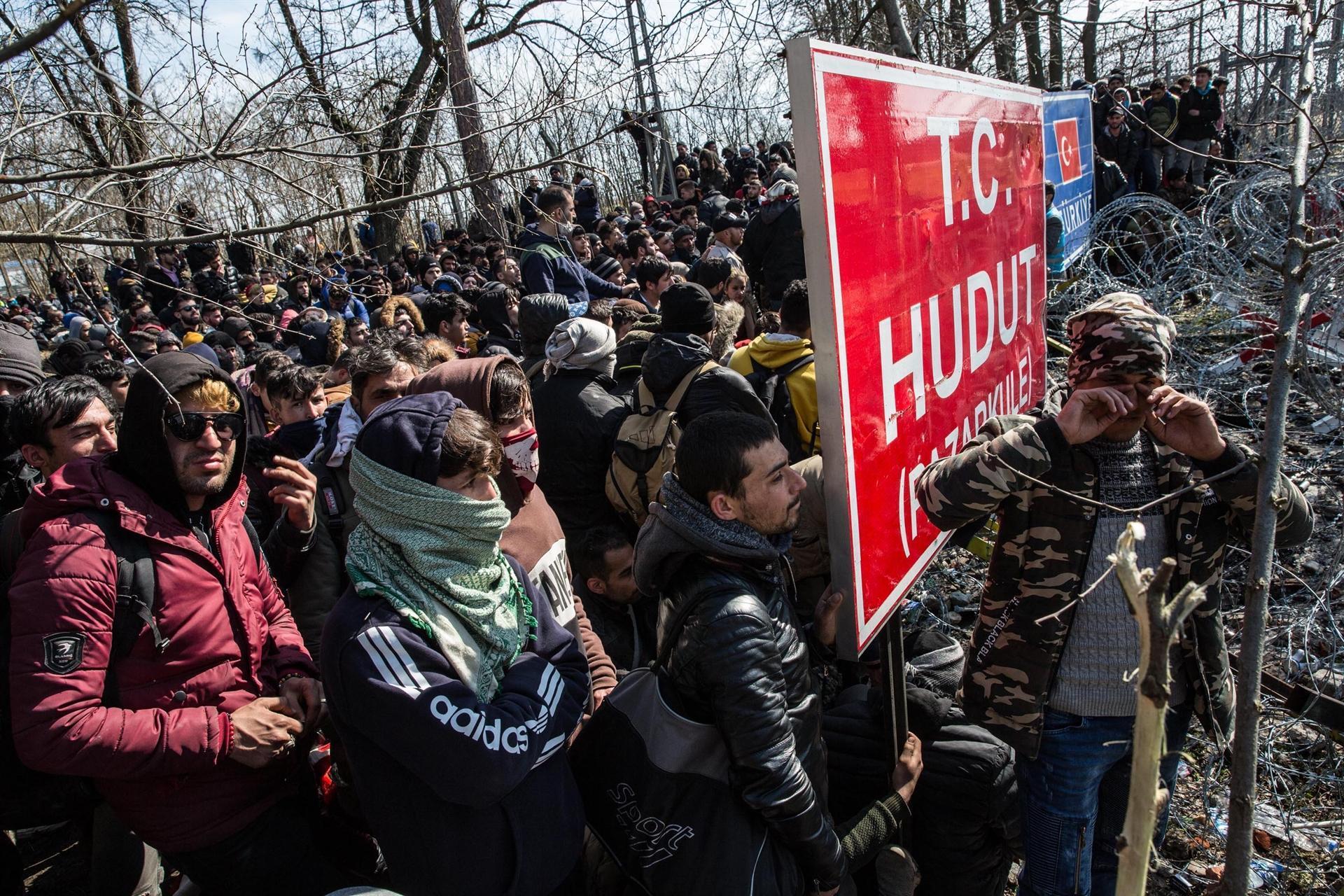
DHA File Photo
Turkish authorities have evacuated thousands of migrants who had been waiting at the border with Greece hoping to make their way into Europe, as a precaution amid the coronavirus pandemic, Turkey's interior minister said on March 27.
Thousands of migrants had massed at a border crossing with European Union-member Greece after President Recep Tayyip Erdoğan announced last month that Turkey would no longer prevent refugees and other migrants wanting to travel to EU countries.
Violent clashes erupted between the migrants and Greek border authorities trying to push them back.
Interior Minister Suleyman Soylu told private broadcaster NTV that some 5,800 migrants waiting at the border crossing in Edirne province were moved away from the border area overnight.
The migrants have been taken to migration centers in nine provinces, he said.
Soylu warned, however, that the move did not amount to a change in policy and that the migrants would be free to return once the pandemic is over.
“When this epidemic is over we would not prevent whoever wants to leave,” he said.
Earlier, the state-run Anadolu Agency said migrants staying in a makeshift camp near the border gate were moved in buses to state guest houses where they would be quarantined.
They would be moved to other regions in Turkey at the end of the quarantine, according to the agency.
Greece hailed the development as an "important thing for our country and for Europe," praising Greek authorities' ability to guard its land and sea borders.
A Turkish journalist based in Edirne said several buses were seen leaving the border area and that authorities later disinfected an area where the migrants had been camping.
Anadolu Agency said some of the migrants asked to be moved, while others had to be convinced.